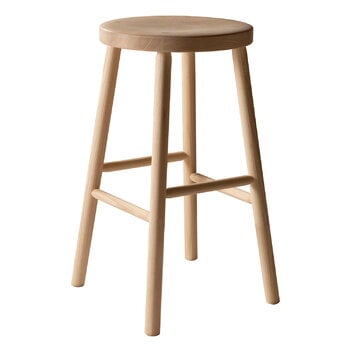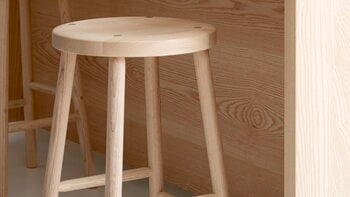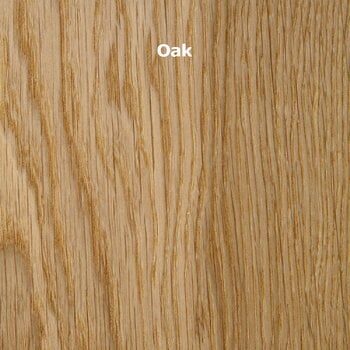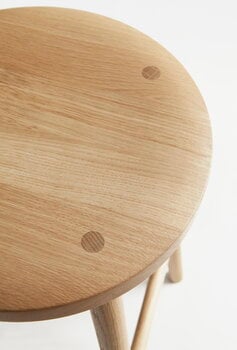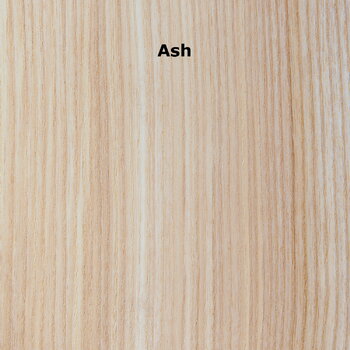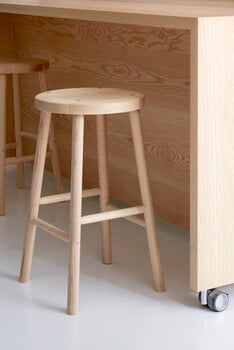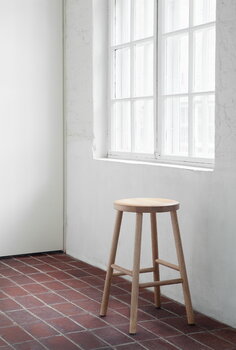Nikari’s Storia stool is the embodiment of minimalism, shining the spotlight on the natural beauty of wood and the expert joinery of carpenter and designer Kari Virtanen. When designing Storia, Virtanen looked back on a seat he crafted in the 1960s – the Storia stool is an homage to Nordic woodworking traditions but also to the very first stool Virtanen created all those years ago. Storia’s delightfully simple design is easy to incorporate into a variety of private and public spaces.
Storia stool 65 cm
Nikari
Description
Nikari’s Storia stool is the embodiment of minimalism, shining the spotlight on the natural beauty of wood and the expert joinery of carpenter and designer Kari Virtanen. When designing Storia, Virtanen looked back on a seat he crafted in the 1960s – the Storia stool is an homage to Nordic woodworking traditions but also to the very first stool Virtanen created all those years ago. Storia’s delightfully simple design is easy to incorporate into a variety of private and public spaces.
Product details (5)
- Colour
- Ash / Oak
- Material
- Oil waxed ash / oak
- Width
- 35 cm
- Depth
- 35 cm
- Height
- 65 cm
- Product ID
Designer
Kari Virtanen (b. 1948) is a Finnish carpenter who with his hard-working attitude has gained his place as one of the most recognised wooden furniture experts. In 1967 Virtanen founded Nikari, a company producing high-quality wooden furniture.
Virtanen has been awarded the Finnish State Design Award in 2005, the Pro Finlandia Medal in 2009 and the Kaj Franck Design Prize in 2022.
View all productsReviews (0)
Sustainability
The Product Sustainability Framework, our criteria of sustainable design, helps you find the most sustainable products in our selection. Read below which sustainability criteria this product has met.
Working conditions & labour 9/9
-
Equal opportunities for all employees
-
Commitment to UN Global Compact, fair compensation for all employees
-
Corporate responsibility requirements defined and communicated for suppliers
-
Systematic work for improved inclusion and well-being in the workplace
-
Transparent supply chain
-
Suppliers' compliance to a code of conduct ensured
-
Direct suppliers audited and certified
-
Compliance to the UN Guiding Principles on Business and Human Rights ensured in the supply chain
-
Support for community involvement in the supply chain
Eco-friendly production 9/9
-
Fair and resource-wise water-use in production
-
No incineration or landfilling of returned items
-
No use of endangered species as materials
-
No direct environmental emissions or waste (excl. GHGs) from production
-
The sustainability of direct suppliers' production is addressed and monitored
-
Production and material sourcing that respect biodiversity, animal rights, and natural ecosystems
-
Material-efficient and ecological packaging
-
Positive impact on nature’s well-being through operations that regenerate natural ecosystems
-
No potentially harmful chemicals used in own production
Climate impact 8/8
-
Company's direct greenhouse gas emissions identified and commitment to reduction
-
Product's carbon impact identified and commitment to reduction
-
Guidance on energy- and eco-efficient use of the product
-
Contribution to climate initiatives beyond the brand’s direct operations
-
Low-carbon or compensated transportation
-
Carbon footprint of the product calculated and goals set to reduce it
-
100 % renewable energy in own production and operations
-
Carbon neutral or carbon negative product
Sustainable materials 6/6
-
Sustainable and long-lasting material choices
-
No harmful or hazardous substances
-
Responsible raw material sourcing and production
-
Materials suited for circularity: monomaterials, recyclable finishings, renewable or recycled contents etc.
-
Ecological materials: natural, biodegradable, recyclable or recycled contents
-
Outstanding materials in terms of innovativeness, responsibility, sustainability and circularity: local production or sourcing, 100 % recycled content, C2C-certification etc.
Circular design 5/5
-
High aesthetic quality promoting long-term use of the product
-
Technically durable product design and material choices
-
Design for enduring life-long quality
-
Design and support for product maintenance, repair and upgradability
-
Innovative circular design solutions: circular service system, resale platform, remanufacturing, collection of used products, etc.

